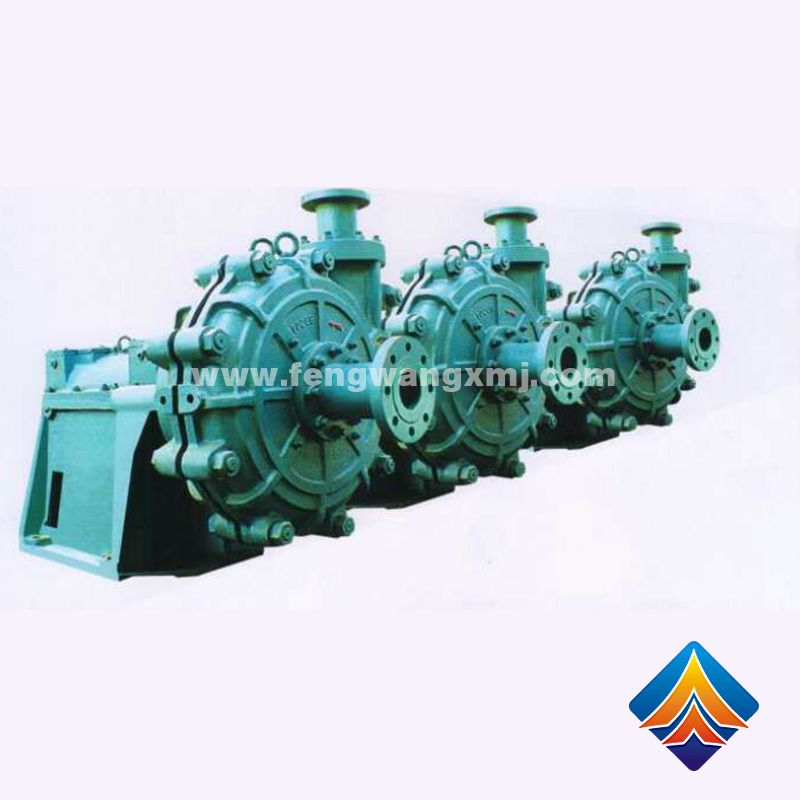ZGB series slurry pump vertical spindle pump

Popis produktu
ZGB series slurry pump vertical spindle pump slurry pump impeller portable slurry pump small slurry pump
ZGB series slurry pump: modern CAD design, excellent hydraulic performance, high efficiency, low wear rate, large flow rate, multi - span, multi - stage series, mainly used for power, metallurgy, mining conveying corrosive slurry, Especially used in power plant ash.
In mining operations, slurry pumps are used to transport the target minerals and overburden to plants which use a system of wet separation. After crushing and screening, the mineral is usually milled before being transported for further separation. This process requires a large volume of slurry to be transported across often long distances. Once this process is complete, the tailings are usually disposed of via piping systems to the tailings dumping site.
Special designs are also available for handling froth in the separation process.
Slurry pump selection is a complex process and requires close cooperation between the pump manufacturer and the end user as the medium to be pumped and the pump operating conditions are extremely important to the correct pump selection.
This article will outline the basic principles involved in selecting the right pump for the job, and will look predominantly at centrifugal slurry pumps.
slurry pumping Characteristic
1.Hydraulic driven, two ceramic pistons working up and down stably
2.The highest feeing pressure could be 2.5Mpa, the rate pressure is 2.0Mpa, the pressure could be adjusted.3. Pistons are made of alumina ceramics,of great abrasion resistance and corrosion resistance
4. Using combined seal, good sealing efficiency
5.Good Design Structure, Convenient Installation and maintenance, Long Usage Life Span
Centrifugal slurry pumps
Fengwang-Centrifugal slurry pumps are typically used in mineral extraction process plants, and are designed to handle abrasive solids mixed with a carrier fluid.
Slurry pumps often operate 24/7, and in severe conditions the wear life of wetted components can be up to two to three months.
Since excessive wear would be generated on the inter-stage passages of a multi-stage slurry pump, they are invariably single-stage equipment.
Both horizontal and vertical shaft configurations are available, with transmission of process slurries around a plant usually handled by horizontal pumps, while vertical pumps are used in sumps and generally have a cantilevered shaft so that all bearings are located above fluid level.
Slurry pump selection
Slurries are often very abrasive and may contain large solid particles. This makes wear life and the ability to pass these large solids key considerations in pump design and application.
Wear can be controlled by proper pump selection based on the application details provided by the user, and is related to the velocity between the pumped slurry and the pump. For pumps in more severe services to have a satisfactory life, liquid velocities should be reduced.
Experience has shown that the impeller rotational speed should be kept as low as possible for pumps handling abrasive fluids. Wear will vary approximately as the cube of the speed and with particle concentration.
Rubber-lined pumps are limited to lower impeller peripheral speeds because pressure fluctuations from the passing impeller vanes may cause internal heating due to the deformation hysteresis of the rubber. Increasing pressure fluctuations would eventually lead to degradation of the rubber polymer structure.
When operating conditions or other considerations require longer component life, the peripheral speeds should be lowered, noting that wear life would be approximately doubled by a 20 per cent drop in pump rotational speed.
Even the largest, most robust pump running at slow speed may still experience gouging and wear. Where the pump is running compared to its design best efficiency point (BEP) is important. Acceptable gouge-free wear depends, among other factors, on the actual percentage of BEP flow r

